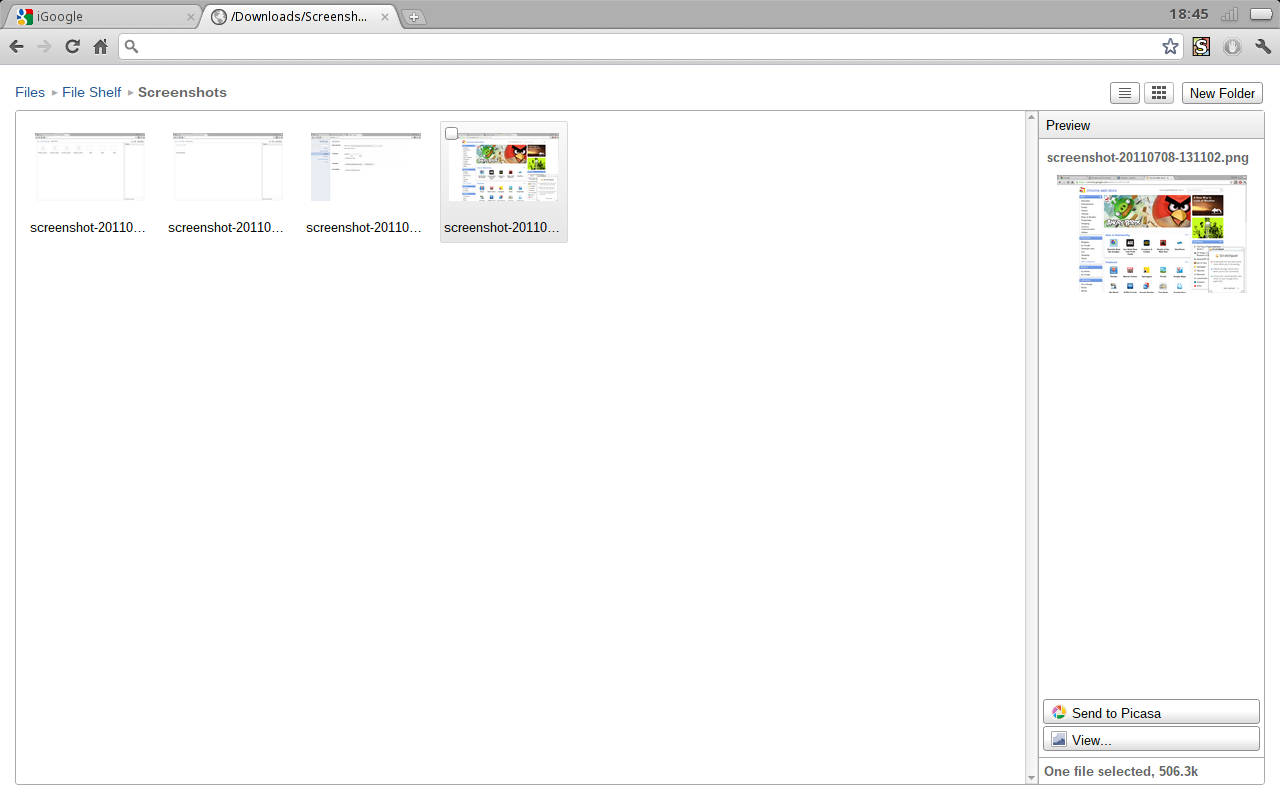Samsung Chromebook Series 5 review
As the first laptop to come pre-loaded with Chrome OS, Samsung's Series 5 Chromebook has certainly made an impression, but is it right for business? Tom Morgan and Alan Lu take an in-depth look.
As a thin client, Chrome OS is mostly a success; its ability to work solely within the cloud means it's very well locked down, but this also means it's entirely dependent on an internet connection. Without one, its usefulness is currently severely restricted. If these two points aren’t an issue, it is an excellent way to reduce your hardware acquisition and support costs over the equivalent Windows machine, but even so given the current limitations and restrictions in the design of Chrome OS we would think very, very carefully before committing to even a small-scale deployment.
The local file browser and multimedia player will continue to function if your internet connection drops, but ScratchPad and other browser extensions won't work until the connection is restored. No web page, even web apps such as Google Docs, will work offline which makes the whole Chrome OS experience a muted one. Google has mentioned that offline access to Google Docs is in the pipeline, but no fixed date has been confirmed.

The Chrome OS file browser appears in a tab and is extremely basic. Available metadata is limited, while copying files is done using a cumbersome selection box process rather than by either drag or drop or copy and paste which would be far more intuitive.
The Chrome web store offers some extra functionality; among the most popular apps at the time of writing were Springpad, a simple note-taking app, and the Tweetdeck twitter client. However, the majority of the 'apps' available on the Chrome web store are really just simple shortcuts that don't add any extra features over the web pages they link to.
It's of course possible to simply use websites not distributed through the Chrome webstore, such as Photoshop.com and Picknik to edit photos. These were reasonably responsive, but unsurprisingly aren't as sophisticated as their desktop counterparts. Microsoft's web-based version of Office is a good alternative if Google Docs doesn't meet your needs, and there are more HTML5-powered sites that mimic desktop programs appearing all the time, but many users are sure to miss the ability to install their preferred programs, especially bespoke apps, although this also makes Chrome OS less susceptible to malware with seemingly no need for endpoint security.
Sign up today and you will receive a free copy of our Future Focus 2025 report - the leading guidance on AI, cybersecurity and other IT challenges as per 700+ senior executives
-
 European Commission clears Google’s Wiz acquisition, citing 'credible competition' from Amazon and Microsoft
European Commission clears Google’s Wiz acquisition, citing 'credible competition' from Amazon and MicrosoftNews Regulators said there are “several credible competitors” to Google regardless of the acquisition
By Ross Kelly Published
-
 EU inaugurates NanoIC facility for next-generation chips
EU inaugurates NanoIC facility for next-generation chipsNews The project forms part of efforts to reduce reliance on US and Asian supply chains
By Emma Woollacott Published
-
 European Commission confirms hackers breached mobile management platform
European Commission confirms hackers breached mobile management platformNews Security experts warned the breach could lead to follow-up phishing attacks
By Emma Woollacott Published